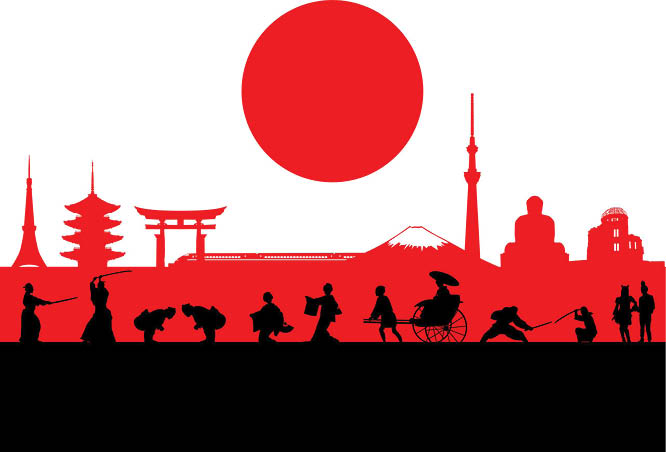 ‘Shukrana’ or gratitude, means appreciation; and appreciation demands that we focus on the good within ourselves, in others, in the world and life itself. Authentic relationships and good relationships are formed and nurtured only because of gratitude. We appreciate only when we take absolutely nothing for granted and when we take this positive mental-about-turn, we are grateful to just get up every morning (without anyone’s help), grateful for the first cup of tea and the birds that chirp lustily on our windows. We are grateful for the vibrant life around us, the sky, the first ray of the sun as it rises, the trees, the grass, the flowers…
‘Shukrana’ or gratitude, means appreciation; and appreciation demands that we focus on the good within ourselves, in others, in the world and life itself. Authentic relationships and good relationships are formed and nurtured only because of gratitude. We appreciate only when we take absolutely nothing for granted and when we take this positive mental-about-turn, we are grateful to just get up every morning (without anyone’s help), grateful for the first cup of tea and the birds that chirp lustily on our windows. We are grateful for the vibrant life around us, the sky, the first ray of the sun as it rises, the trees, the grass, the flowers…
The human mind is complex. Understanding our own inner-space is more challenging than conquering outer-space. Psychology, neuroscience, medicine and spirituality – all stand in absolute agreement about the power of gratitude. According to psychology, gratitude helps us focus on the good in people and the world, so we have meaningful and enduring interpersonal connections. It keeps us proactive, motivated and happy to be alive. It removes negative emotions and helps deal with life’s setbacks, tragedies and disappointments. It fosters a sense of well-being and is an antidote to stress and depression.
Neuroscience and medicine show that gratitude slows down our heart rate, relaxes the body’s internal system, boosts immunity and thereby increases our sense of well-being. It slows down the activity of the sympathetic nervous system and relaxes us. Thus, the wear and tear on our nerves and internal organs is minimized. It decreases the stress-hormone cortisol. In short, it has an anti-aging, relaxing effect on us.
From a spiritual perspective, (as also quantum physics), all creation is connected by a universal energy field, which appears to have intelligence and is receptive to communication through the language of emotions – it responds to our emotions! The most powerful emotion, second only to love is gratitude which is the activator of the Cosmic switch and therefore at the heart of any effective prayer.
So you see, whether it’s medicine, psychology or spirituality (which all traverse different paths) – everything seems to arrive at one destination, which is to confirm that gratitude has the power to positively transform our life. Gratitude optimizes our physical and mental well-being and it allows us to see the magical in the mundane. It alters the very texture and fabric of our lives in miraculous ways, even attracts universal blessings into our lives. The more we thank, the more we have to thank for!
 Some people grumble about their spouse, children, friends or job instead of being grateful for what they have! In John Brugaleta’s essay on gratitude, he writes, “May I always remain grateful for any shelter, any mouthful of food or sip of water, any friendly gesture and offer of help or even a touch of understanding from another person.” Before a meal, Catholics say, “Thank you God for what we are about to receive,” and we say, “Khodaiji na Shukrana.” The Japanese say “Itadakimasu”, a tiny word with a long meaning – “I humbly and thankfully receive this food and bless the hands of those who grew, prepared and served it.” “Itadakimasu” relates to the Buddhist principle of thanking the plants and animals who “gave their lives” for the meal you’ll eat. It is also supposed to include the hunter, farmer, grocer, transported, shop-keeper and the person who cooked the meal. “Itadakimasu” is said all the time in Japan, for the smallest thing as gratitude. I’ll end this para by saying “Itadakimasu” to my Editor for carrying this article and all of you for reading it!
Some people grumble about their spouse, children, friends or job instead of being grateful for what they have! In John Brugaleta’s essay on gratitude, he writes, “May I always remain grateful for any shelter, any mouthful of food or sip of water, any friendly gesture and offer of help or even a touch of understanding from another person.” Before a meal, Catholics say, “Thank you God for what we are about to receive,” and we say, “Khodaiji na Shukrana.” The Japanese say “Itadakimasu”, a tiny word with a long meaning – “I humbly and thankfully receive this food and bless the hands of those who grew, prepared and served it.” “Itadakimasu” relates to the Buddhist principle of thanking the plants and animals who “gave their lives” for the meal you’ll eat. It is also supposed to include the hunter, farmer, grocer, transported, shop-keeper and the person who cooked the meal. “Itadakimasu” is said all the time in Japan, for the smallest thing as gratitude. I’ll end this para by saying “Itadakimasu” to my Editor for carrying this article and all of you for reading it!
On a personal note, my Bapaiji was on a perpetual diet of gratitude from morning till night, every day of her life in spite of set-backs, hardships and tragedies. An incurable optimist, unlike most of her contemporaries, she never spoke of her health problems and led a busy and productive life filled with tennis at YMCA, hour-long morning and evening walks and did cooking for the entire family with little help from others. She loved books, plays, movies, music, meeting friends and going to circus with the glee of a child.
She helped everyone who came to her, like an arm-chair life-coach and counsellor. She prayed only for a few minutes on walking-up in the mornings and going to bed at night. She was totally iconoclastic and prayed herself for her husband instead of having any rituals for him. She wasn’t rich in monetary terms but far richer than her monied friends who were always whining, complaining, pessimistic and dissatisfied. The secret of her “happiness diet”? Well, she counted her blessings from moment to moment. In the mornings, I’d hear her say – what a lovely day, lovely sunshine, lovely rain and unfailingly add SHUKRANA – the magic word!
We measure happiness in terms of days and weeks, whereas it should be measured in terms of moments. We also confuse happiness with what money can buy whereas most happy things are free like sunrise, getting out of bed without anyone’s help, long walks, gentle breeze, holding hands with your spouse, the laughter of children sitting in Nature etc.
Have an attitude of gratitude. Say ‘Shukrana’ where it is due. Next time you have insomnia, don’t count sheep – count your blessings and you’ll sleep like a new-born baby!!
- Meherbai’s Mandli’s New Year Resolutions Become Foos-Faas!! - 15 February2025
- How Long Can You Stare At Your Wife? - 25 January2025
- Journey To The Inner World - 11 January2025
